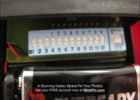Exploring the Different Types of Garage Door Openers: Which One is the Best for You?
![[Tags] types-of-garage-door-openers Exploring the Different Types of Garage Door Openers: Which One is the Best for You?](https://swopesgarage.com/wp-content/uploads/2018/03/types-of-garage-door-openers.jpg)
When it comes to garage door openers, there are a variety of options to choose from. Understanding the different types of garage door openers can help you make an informed decision when selecting the best one for your needs. In this article, we will explore the various types of garage door openers available in the market today, including belt drives, chain drives, screw drives, direct drives, and jackshaft openers. We will discuss the pros and cons of each type, as well as factors to consider when choosing the best garage door opener for your specific situation. Whether you prioritize quiet operation, cost-effectiveness, low maintenance, minimal noise, or suitability for heavy doors, we will help you find the perfect garage door opener for your requirements. So, let’s dive into the world of garage door openers and discover the best options available.
Understanding the Different Types of Garage Door Openers
When it comes to choosing a garage door opener, there are various options available in the market. Each type of opener has its own set of features, advantages, and disadvantages. Understanding the different types of garage door openers can help you make an informed decision based on your specific requirements and preferences.
There are primarily four main types of garage door openers: chain drive, belt drive, screw drive, and direct drive. Let’s delve into each type and explore its characteristics, benefits, and drawbacks.
1. Chain-Drive Garage Door Openers:
Chain-drive openers are one of the most common and affordable options in the market. They operate using a metal chain that moves the trolley to open or close the garage door. These openers are known for their durability and strength, making them suitable for heavy garage doors. However, they tend to be noisier compared to other types.
2. Belt-Drive Garage Door Openers:
Belt-drive openers operate similarly to chain-drive openers but use a belt instead of a chain. The belt is typically made of rubber, fiberglass, or polyurethane, resulting in a smoother and quieter operation. Belt-drive openers are an excellent choice for those who prioritize noise reduction and want a reliable option for their garage door.
3. Screw-Drive Garage Door Openers:
Screw-drive openers utilize a threaded steel rod to move the trolley and operate the garage door. These openers require less maintenance compared to chain-drive or belt-drive openers as they have fewer moving parts. While they are generally quieter than chain-drive openers, they may not be as quiet as belt-drive openers. Screw-drive openers are suitable for those seeking a balance between durability and noise reduction.
4. Direct-Drive Garage Door Openers:
Direct-drive openers are the newest and most advanced type on the market. They feature a motor that moves along a stationary chain embedded in a rail. This design eliminates the need for belts, chains, or screws, resulting in ultra-quiet operation and minimal maintenance. Direct-drive openers are known for their reliability and are often preferred by those who value smooth and silent performance.
In conclusion, there are several types of garage door openers available, each with its own distinct features and benefits. The choice of the best type of opener for your garage door depends on factors such as noise tolerance, budget, door weight, and personal preferences. By understanding the different types of garage door openers, you can make an informed decision and select the option that suits your needs best.





